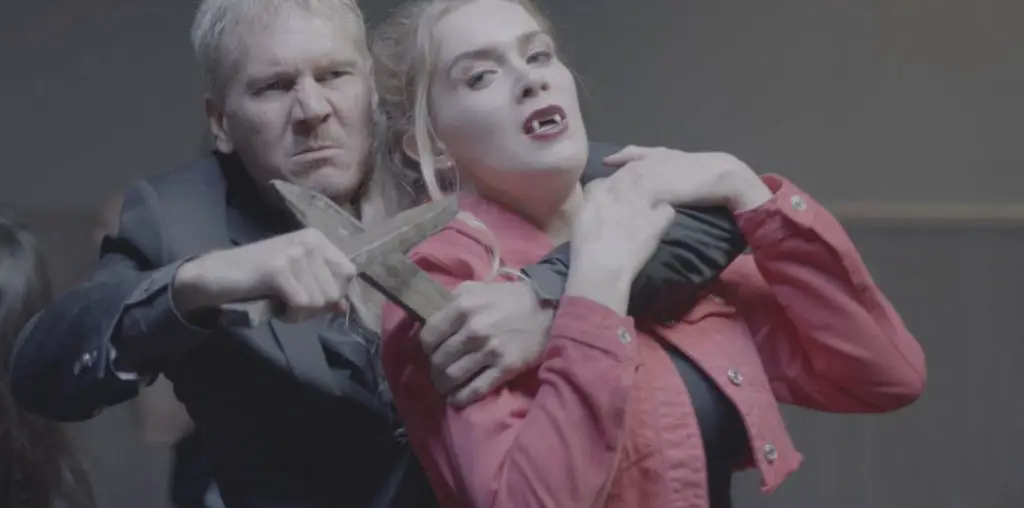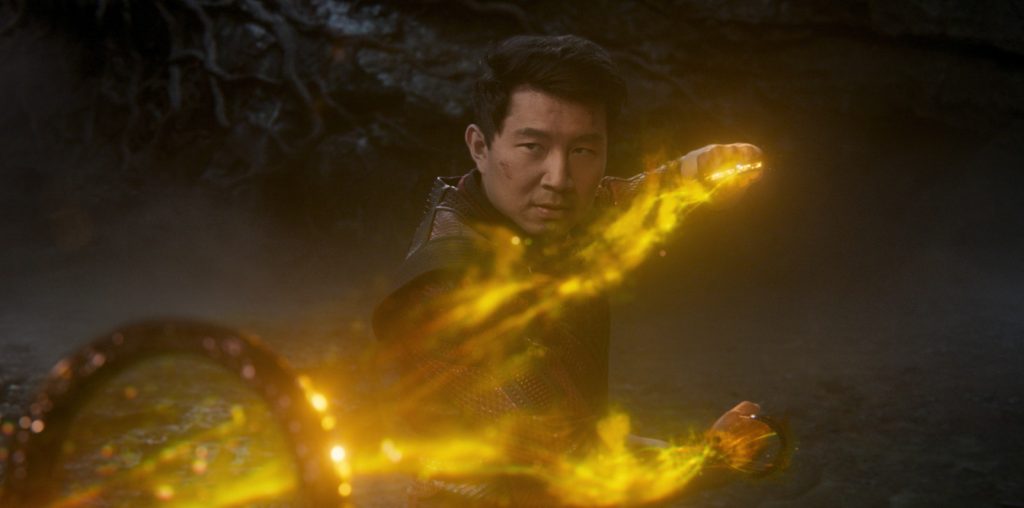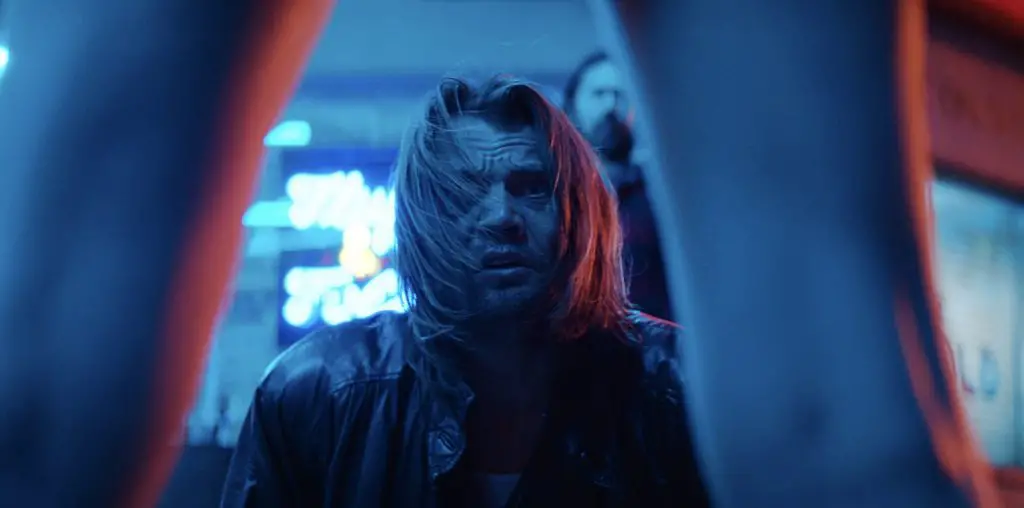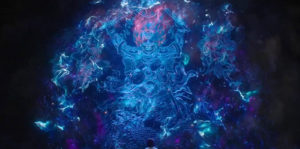
An experience so visually overwhelming it borders on aggressive, Lu Yang’s bonkers, mega-budget A Writer’s Odyssey is as lively and epic as it is silly and incomprehensible. Neither the lapses in logic nor the atrocious dialogue, rendered worse via dubbing, stopped me from being entertained, for the most part. Say what you want about this odd blend of real-life drama and gargantuan special effects-driven mythical set-pieces, but the thing moves.
The devastated Guan Ning (Lei Jiayin) determinedly seeks his daughter, Tangerine (Wang Shengdi), whose misty memories haunt and torment him. He also dreams of a golden, otherworldly city that feels oddly familiar. Events unfurl in rapid succession: he attacks child traffickers, is busted by the cops, then taken under the wing of Ling (Yang Mi), a bighead at a shady global conglomerate, who claims to have narrowed down the search to several girls.
There’s a caveat, of course. He must kill the mask-wearing social media sensation, fantasy author Lu Kongweng (Dong Zijian), to get Tangerine back. Why? Because – and this is where things start to really get nuts – Kongweng’s writings somehow affect reality, and the city in one of his stories happens to be the city of Guan Ning’s dreams. Also, apparently, there are folks with superpowers, and Guan Ning’s talent is throwing projectiles with incredible force and accuracy.
Confused yet? That’s only half the plot. The majority of the centerpieces in A Writer’s Odyssey are set within the writer’s story, in which a hero’s – Kongwen (Zijian again) – quest involves monks, a pirate-like freighter, water beasts, a striking parade with massive peacocks, a mass worship, and manmade steampunk dragons. Some of this reflects happenings in real life.
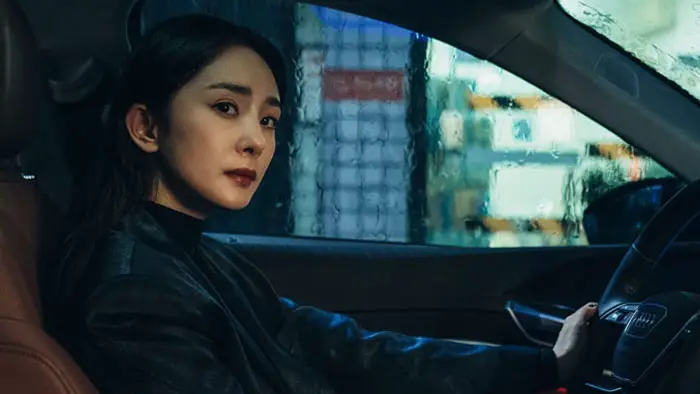
“…Kongweng’s writings somehow affect reality…”
The glorious imagery seems to have exploded straight from Yang’s head onto the screen: a lightning-fast crimson knight with an enormous axe chasing our hero; multiple inventive battles involving Guan Ning’s powerful, precise throws; and a boss battle with a four-armed giant who resembles Akuma from Street Fighter. Oh, and Kongwen has an anthropomorphic eye on his chest that speaks to him occasionally.
Amidst all this insanity, there are motifs of art imitating life, the power of imagination, the way our stories shape us, and “alter reality.” But I’m reaching here. The plot gallops along with the crazed determination of a rabid stallion, impervious to its own ridiculousness, confident in its destination.
Han Qiming’s cinematography throughout A Writer’s Odyssey is stunning. The choreography largely impresses when it’s not hampered by choppy editing. Jed Kurzel’s thunderous score bombards the proceedings. The Chinese-American dubbing’s hysterical with awkwardly delivered lines like “These child traffickers are the scum of the earth,” and “Come. Let me crush you.” It’s highly debatable whether subtitles would’ve made a difference.
It all somehow remains gripping for a good two-thirds, and then the action grows repetitive, the assault of pixels redundant. Yang seems to have embarked on his own writer’s odyssey, going for broke, with a substantial studio budget to help visualize his dreams. There’s no doubting the creativity he displays in A Writer’s Odyssey; he could, however, work on coherence and restraint.
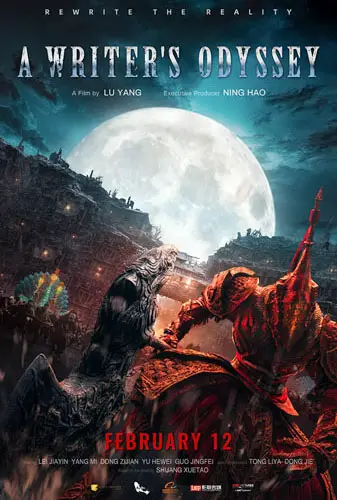
"…gallops along with the crazed determination of a rabid stallion..."
